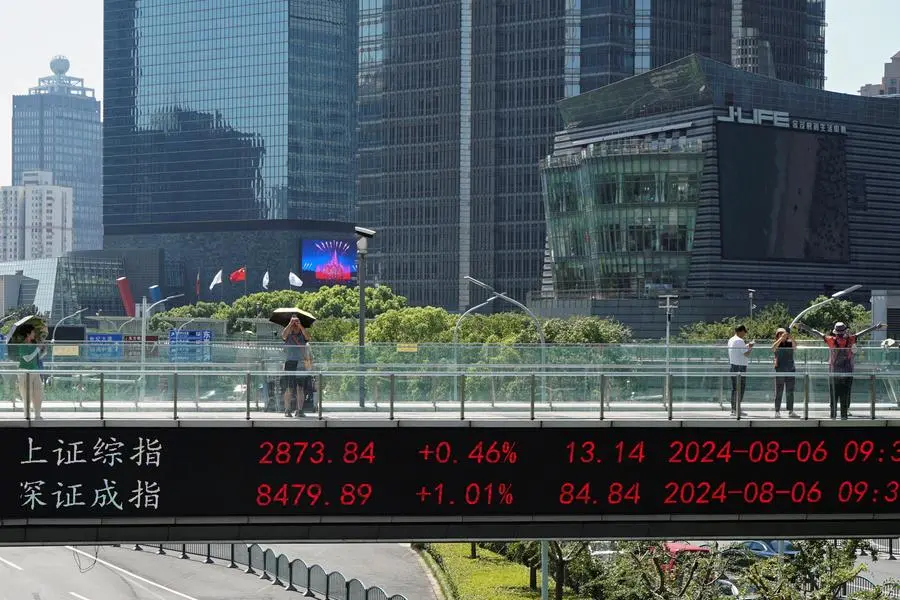PHOTO
European shares fell on Thursday following stormy sessions in Asia and on Wall Street, but U.S. stocks were set to rise after data on jobless claims was stronger than expected.
The yen rallied in the European morning session but reversed course to sit lower after the data as a turbulent week in global markets continued.
U.S. figures showed there were 233,000 initial jobless claims last week, below the 240,000 expected by economists and down from 250,000 the week before. The data has taken on extra significance after weak employment numbers helped spark Monday's market rout.
Europe's continent-wide Stoxx 600 index was last down 0.4%, after standing 0.8% lower before the data and climbing 1.5% on Wednesday. Germany's DAX index was down 0.2% and Britain's FTSE 100 0.7% lower.
Futures for the U.S. S&P 500 were up 0.7%, having sat 0.1% higher before the figures. The index fell 0.8% the previous day, giving up gains of as much as 1.7% in morning trading.
Florian Ielpo, head of macro at Lombard Odier Investment Managers, said the jobless claims figures were somewhat opaque.
"It is difficult to read a significant message in this data," he said. "At least the latest number remains on par with the previous one, without inverting the trend of rising weekly jobless claims."
The dollar rose against the yen after the figures and was last up 0.3% at 147.10, following a 1.6% rally on Wednesday.
The dollar index was last up 0.3% at 103.39, up from an eight-month low of 102.69 on Monday.
Yields on 10-year U.S. government debt abruptly reversed course to stand 2 basis points (bps) higher at 3.989%.
STORMY WEATHER
Weak U.S. jobs data last week combined with a dramatic rally in the Japanese yen and concerns about an artificial intelligence bubble to send stocks tumbling this week.
The S&P 500 slumped 3% on Monday and sits 2.8% lower for the week - although it still remains around 9% higher for the year.
Analysts said they expected markets to continue to swing in the coming days and weeks. "When you have a volatility shock like this, and you have a degree of unwind in certain positions, you're very prone to sudden reversals and also a degree of uneasiness as the adjustment continues," said Erik Nelson, macro strategist at Wells Fargo.
"I would be surprised if we just went back to everything being fine."
Investors are keeping a close eye on the yen in particular, which has been at the heart of the storm.
The yen has surged 11% since hitting a 38-year low in July, helped by intervention from authorities, a surprise Bank of Japan rate hike, and the U.S. jobs slowdown that has weighed on the dollar.
The rally has forced investors to dramatically unwind carry trades, where they borrow cheaply in Japan to buy dollars and other currencies to invest in higher yielding assets, and helped trigger a 12% plunge in Japanese stocks on Monday.
Traders on Thursday slightly reduced their bets on Federal Reserve rate cuts this year, pricing in 105 bps of cuts by December from 110 bps beforehand.
Crude oil rose again after climbing the previous day when data showed a bigger-than-expected drawdown in U.S. crude stockpiles.
Brent crude futures rose 0.2% to $78.49 a barrel. It hit an eight-month low of $75.05 a barrel on Monday.
(Reporting by Harry Robertson Editing Gareth Jones, Kirsten Donovan and Sharon Singleton)




















